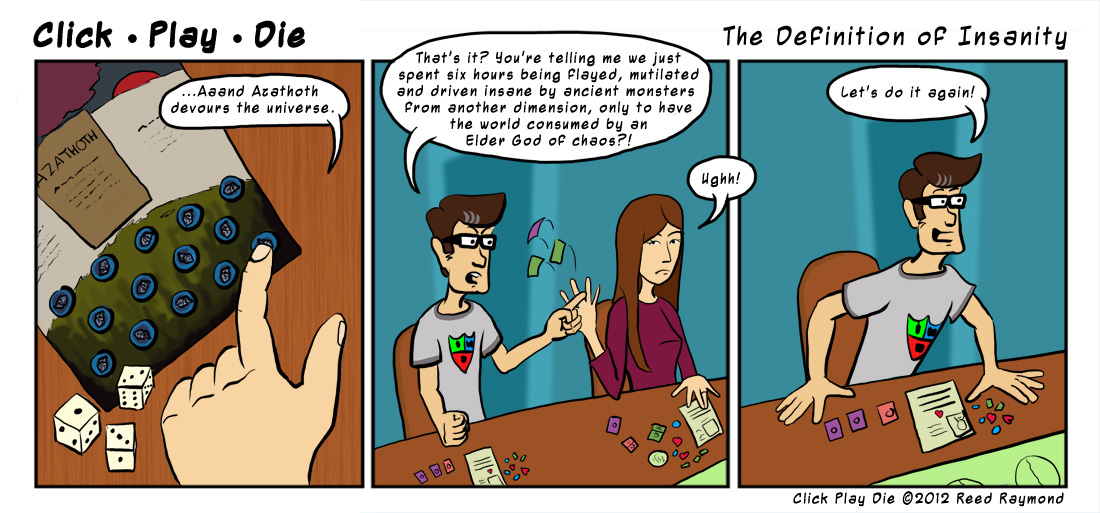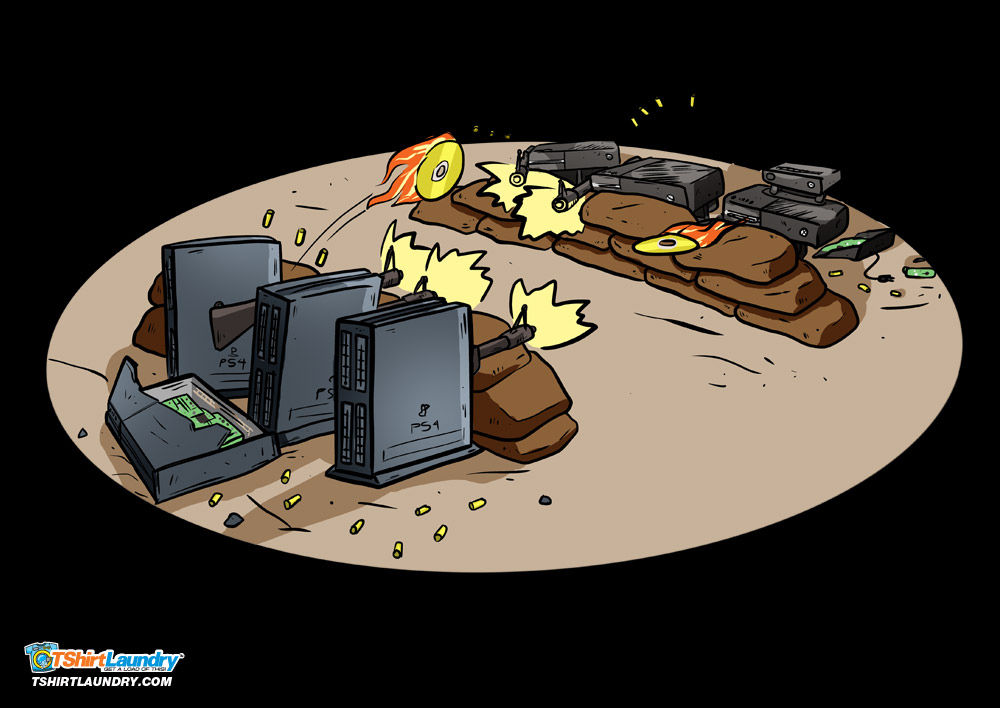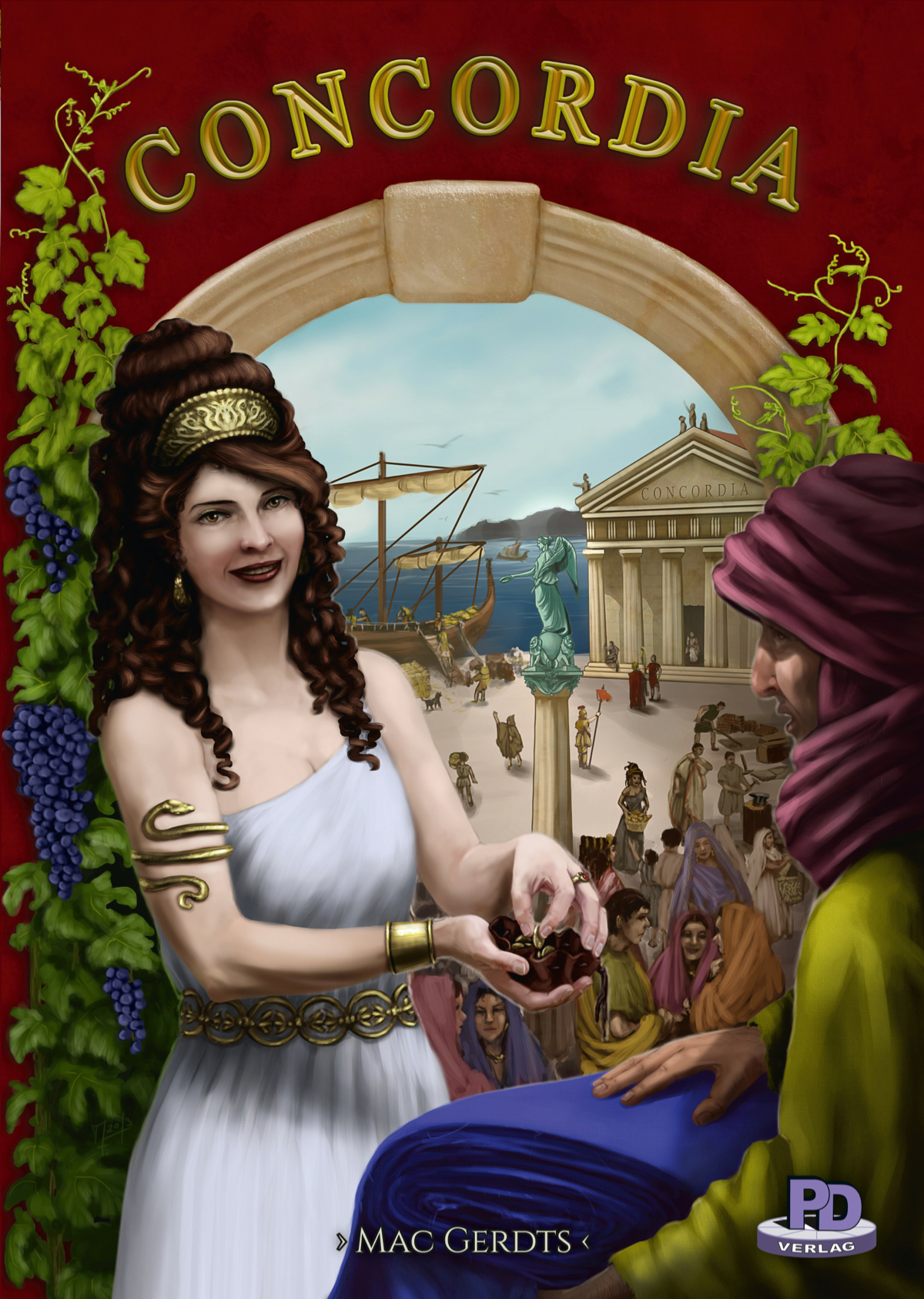Euro Vision: How I Put Down the Axe and Picked Up a Plow
Long before I knew terms like Eurogame (Euro for short) and Ameritrash existed, long before I knew what drafting was, or what meeples were and how you use them for worker-placement, I bought Arkham Horror. It was my first boardgame, and I bought it because the board was big and detailed and gorgeous to look at. Because there were sixteen Investigators, all with their own skills and backstories, all able to rattle off Tommy guns and wield spells. Because there were monsters to fight and otherworldly realms to visit and everything spoke to this grand adventure I could participate in – so far removed from any boardgame experience I’d had before.

It’s like looking into a mirror. Link
And the thrill of opening that box for the first time remains a tangible memory. My gaze fell upon every component with such adoration, and I no doubt spent about three days pouring over the rulebook. Not just because my untrained mind struggled to comprehend the sheer volume of moving parts, but equally there was a strange sense of satisfaction in delaying – as if the idea of playing the game was almost better than the potential reality.
Did Arkham eventually live up to my expectations? Well, that’s a topic for another time. What it certainly did achieve was a baptism of fire into the core tenets of Ameritrash, even though I may not have known at the time. And for a while, thematic was the way I rolled. I can still recall looking at Lords of Waterdeep, at the cubes and relative blandness of the board, and dismissing the game with a subtle blend of idiocy and ignorance. Shortly after, I was made aware of a term that explained Ameritrash’s polar opposite – the Lex Luthor to Superman, if you will – the Euro.
It’s an interesting contrivance that seems to occur in many popular hobbies, this notion of internal factions – that it’s not just good enough to be invested in the hobby, you have to be committed on a deeper level. Mountain bikers vs road cyclists, Xbox One vs PS4, D&D vs Pathfinder…the list goes on. Why should boardgaming be immune? Well, it isn’t to a degree – the answer is a little more complex. But let’s establish some grounds rules here before I go further.
Just what exactly do the terms Eurogame and Ameritrash (or Amerithrash if you prefer) mean? They’re typically less about specific genres as they are descriptors that grew organically from the very different boardgaming cultures that emerged from Europe and the States a good few decades ago. At the time, Americans were playing games heavy in theme and luck such as Fireball Island or The Dark Tower, whereas the Europeans appreciated more of a ‘mechanics first’ approach. Those are probably the simplest ways to differentiate between the two, but if you’re interested in a more detailed breakdown of the key aspects of each, this BGG post does a pretty great job. Although as someone in the comments to that post humorously points out – what’s the difference between Euro and Ameritrash? You’ll know it when you see it.
This is not a piece about whether or not the terms Ameritrash and Euro are outdated. Nor is the intention to showcase one genre as being of greater relevance or greater value. And it’s certainly not an analysis on how strongly genre allegiance plays into the development of social coteries within the community. I reckon if anything, Euro and Ameritrash have far less to do with segregating, and far more with potentially limiting our exposure to other games. And that’s precisely what I want to discuss. Those defining terms may not see much use in a decade’s time, but for the moment they are still very much buzz words within the hobby, and for the new gamer, they both represent islands of a sort – it’s very easy to find yourself stranded upon one without any awareness or interest in traveling to the other.
But back to my own personal journey, since in the end that’s the only place I can truly speak from with any semblance of authority. If I had to guess, I’d estimate that I was pretty much entrenched within the Ameritrash classification for at least a year or two. It’s different for everyone, and it depends very much on what game it was that first coaxed your interest, but after experiencing the potent theme of Arkham Horror, it was difficult to look at a Settlers of Catan and find any desire to play it. But, as I’m sure most veterans will tell you, this hobby is like a corridor from the Matrix. Every door you open seems to change your perspective and each room offers something more intriguing than the last.
Now, all of six years later, and my wishlist largely consists of games such as Viticulture, Concordia and La Granja (not La Ganja – like a pot-themed boardgame could ever exist), and if you’re unsure which category those belong to, take a gander at the box art for Concordia. Does this massive shift in allegiance indicate an earth-shattering revelation? Well, perhaps not earth-shattering, and certainly not the revelation that Euros are better – rather that my personal tastes have changed, and I allowed myself to flow along with those changes. I still adore equipping Arcadia Quest’s Grom the barbarian with two weapons and wreaking havoc upon goblins and orcs alike, but I’ve also cultivated an appreciation for well-balanced mechanics and the thrill of nursing a long term strategy to fruition.
It remains, I’m sure, a very personal inclination. There are those of us who enjoy seeing the ordered, logical and highly controlled aspects of our daily lives translated into wood and cardboard, and those who would choose the sometimes ridiculous but always memorable moments created in Tales of the Arabian Nights over the trading of sheep every day of the week. The important thing is to be open to trying something outside of your comfort zone.
Curious as to what all the fuss is over Terra Mystica? The next time a local game-group runs a few sessions, go along and check it out! Don’t be discouraged by perceived complexity. A friend recently watched us play a game of Blood Rage, and went from his initial ‘there’s way too much going on I could never conceive of playing this’ to that incredibly satisfying ‘oh, so that’s how it all works together and I might actually want to buy this now’. Similarly, if the closest you’ve been to a zombie in the last two years is your friend Sean because whenever it’s his turn in Agricola all he does is grunt and drool a little, try grabbing some friends who adore The Walking Dead and dive into Dead of Winter. You just might surprise yourself.
Lastly, it’s important to remember that healthy competition is often beneficial. I commonly find calls in a host of varying forums to simply do away with the Euro/Ameritrash terms, that they’re insulting to the hobby and offer nothing positive. They may have a point, and I’m sure if you had the discussion with a designer they’d have a vastly different outlook on the issue. But I look at many of the newer games coming out, and it seems as if designers are being challenged to implement the best of both worlds.
Sure, there’s absolutely still room for the completely superficial beer & pretzels game as well as the incredibly thinky engine builder, but the desire for Eurogames to appeal to Ameritrash and vice versa has lead to the rise of the hybrid. Dungeon Petz, with its cubes and complexity is absolutely a Euro, but the game oozes theme from every pore. Dead of Winter? That potent masterpiece of emergent storytelling? That dice allocation mechanic is totally Euro.
The point is, we need that moment when Claire trashes the tokens on a shipping resource grid in exasperation, threatening violence if she has to calculate one more conversion, visions of gleeful orc-slaying dancing through her head. We need that moment when Andrew rolls his umpteenth combat check and, tears of boredom streaming down his face, pleads to explore and harvest resources on a Caribbean archipelago. We need variation, we need innovative ideas and approaches. Complacency is a killer, whether it’s boardgame design or seeing the same damn game hit the table week in and week out.
Personally, I’m delighted that we have these polar opposites. That they exist is not the problem – believing that they impose limitations is. So try something different, discover a new mechanic you’ve never encountered before. Challenge your preconceptions . Maybe you’re actually a lot more competitive than you thought, and you’re capable of thinking strategically in a way you’d never have guessed. Maybe you genuinely do love boardgaming for the social interactivity and can’t stand all that silence around the table. The more you reach beyond your comfort zone, the clearer the answer becomes.
Now go play a Euro.








